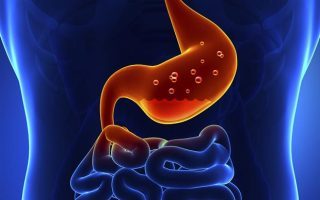- Home
- Editorial
- News
- Practice Guidelines
- Anesthesiology Guidelines
- Cancer Guidelines
- Cardiac Sciences Guidelines
- Critical Care Guidelines
- Dentistry Guidelines
- Dermatology Guidelines
- Diabetes and Endo Guidelines
- Diagnostics Guidelines
- ENT Guidelines
- Featured Practice Guidelines
- Gastroenterology Guidelines
- Geriatrics Guidelines
- Medicine Guidelines
- Nephrology Guidelines
- Neurosciences Guidelines
- Obs and Gynae Guidelines
- Ophthalmology Guidelines
- Orthopaedics Guidelines
- Paediatrics Guidelines
- Psychiatry Guidelines
- Pulmonology Guidelines
- Radiology Guidelines
- Surgery Guidelines
- Urology Guidelines
Common heartburn medicine linked to increased chronic kidney disease risk

Proton pump inhibitors( PPI's), common heartburn medicine have been linked to increased chronic kidney disease risk.
Proton pump inhibitors (PPIs), are among the most commonly prescribed medications in the world. Researcher team at Skaggs School of Pharmacy and Pharmaceutical Sciences at University of California San Diego has found that patients who took PPIs were more likely to experience kidney disease than people who took histamine-2 receptor antagonists, another form of antacid that treats the same conditions. The study has been published by Scientific Reports.
"Post-marketing data collected by the FDA and deposited in the FAERS database allows us to look for potential adverse effects beyond what was found in a clinical trial, which may not have lasted as long or included as much diversity as the FAERS does," said senior author Ruben Abagyan, PhD, professor of pharmacy.
The FAERS database contains more than 10 million patient records -- all voluntary reports of adverse effects while taking a medication. The research team focused on patients who took PPIs and no other medications, narrowing their study population down to approximately 43,000 patients. They applied a mathematical algorithm to look for statistically significant differences in reported kidney-related complications between patients who took PPIs and the control group, approximately 8,000 patients who took histamine-2 receptor blockers, such as Zantac or Pepcid, and no other medications.
Here's what they found: Patients who took only PPIs reported a kidney-related adverse reaction at a frequency of 5.6 per cent, compared to 0.7 per cent for patients who took only histamine-2 receptor antagonists.
Drilling down, the team found that, compared to the control group, patients who took only PPIs were 28.4 times more likely to report chronic kidney disease, as well as acute kidney injury (4.2 times more likely), end-stage renal disease (35.5 times more likely) and unspecified kidney impairment (8 times more likely). Patients who took PPIs were also more likely to experience electrolyte abnormalities, but this varied more by individual PPI, while the kidney-specific effects held true for all five PPIs examined.
Abagyan cautioned that this study does not reveal the absolute frequency of these kidney-related complaints for all people taking PPIs since reporting in the FAERS is voluntary. He also says it's possible, though unlikely, the effect could be due to unidentified confounding factors. A large, randomized, controlled clinical trial would be needed to definitively show causality between PPI usage and absolute risk of kidney disease in humans.
As the World Health Organization notes, PPIs are essential medicines for many people, helping them to control symptoms that are often painful and disruptive to daily life. But Abagyan hopes this initial data will prompt health care providers to provide the appropriate warnings, education and monitoring for patients who require PPIs, particularly if they are already at elevated risk for kidney disease and electrolyte abnormalities. Researchers made similar recommendations following a 2017 UC San Diego School of Medicine study that found evidence in mice and humans that PPIs promote chronic liver disease.
PPIs are relatively inexpensive medications, retailing for approximately $7 for a recommended two-week course of generic, over-the-counter Prilosec (omeprazole). But the frequency of use adds up -- one study estimated Americans spend $11 billion on PPIs each year. There are inexpensive and readily available alternatives to PPIs. However, non-PPI-based antacids (e.g., Pepto-Bismol, Tums, histamine-2 receptor antagonists) may not be as effective.

Disclaimer: This site is primarily intended for healthcare professionals. Any content/information on this website does not replace the advice of medical and/or health professionals and should not be construed as medical/diagnostic advice/endorsement or prescription. Use of this site is subject to our terms of use, privacy policy, advertisement policy. © 2020 Minerva Medical Treatment Pvt Ltd